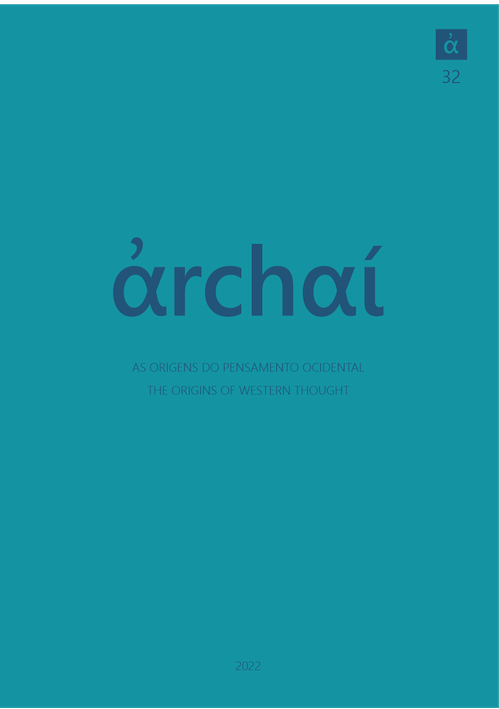Dialectic and Refutation in Plato and Aristotle
DOI:
https://doi.org/10.14195/1984-249X_32_10Keywords:
dossier, dialectic, refutation, Plato, AristotleAbstract
The papers in this dossier were written within the framework of two research projects on the refutation strategies of radical adversaries in Plato’s and Aristotle’s writings. Both projects, directed by Graciela Marcos and based in the Institute of Philosophy “Dr. Alejandro Korn” (Instituto de Filosofía “Dr. Alejandro Korn”) of the Facultad de Filosofía y Letras of the Universidad de Buenos Aires, were subsidised by the Secretaría de Ciencia y Técnica of this university and by the Agencia Nacional de Promoción Científica y Técnológica (ANCyPT), to whom we would like to express our gratitude. Special thanks also to Fabián G. Mié, who, for several years, has been working on the question of dialectic in Plato and Aristotle and with whom, even if he has not formally joined our team, we have had the good fortune to exchange ideas and discuss many of the issues related to both projects. Fabián Mié’s work is therefore added to the works presented by Lucas M. Álvarez, María E. Díaz, Martín S. Forciniti, Julián Macías and Graciela E. Marcos in this dossier.
Downloads
References
ÁLVAREZ, L. (2022). Usos de la refutación y postulación de princípios no hipotéticos en República VI-VII y Sofista. Archai 32.
DÍAZ, M. E. (2022). La influencia de la negación anaxagórica de la génesis en la física aristotélica. Archai 32.
FORCINITI, M. (2022). Ironía y refutación: el elenchos de Calicles en el Gorgias de Platón. Archai 32.
MACÍAS, J. (2022). La asociación entre mythos y logos en el Fedón, o sobre cómo alcanzar el logos más difícil de refutar. Archai 32.
MARCOS, G. (2022). Dialectic and Refutation in Plato. On the Role of Refutation in the Search for Truth. Archai 32.
MIÉ, F. (2022). Aristotle on dialectic and definition in scientific inquiry. Archai 32.
Downloads
Published
How to Cite
Issue
Section
License
Copyright (c) 2022 Pilar Spangenberg

This work is licensed under a Creative Commons Attribution 4.0 International License.
Given the public access policy of the journal, the use of the published texts is free, with the obligation of recognizing the original authorship and the first publication in this journal. The authors of the published contributions are entirely and exclusively responsible for their contents.
1. The authors authorize the publication of the article in this journal.
2. The authors guarantee that the contribution is original, and take full responsibility for its content in case of impugnation by third parties.
3. The authors guarantee that the contribution is not under evaluation in another journal.
4. The authors keep the copyright and convey to the journal the right of first publication, the work being licensed under a Creative Commons Attribution License-BY.
5. The authors are allowed and stimulated to publicize and distribute their work on-line after the publication in the journal.
6. The authors of the approved works authorize the journal to distribute their content, after publication, for reproduction in content indexes, virtual libraries and similars.
7. The editors reserve the right to make adjustments to the text and to adequate the article to the editorial rules of the journal.



